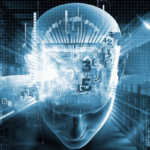Humans often consider themselves the pinnacle of evolution—masters of emotion, communication, and complex behavior. But nature has a way of humbling us. Across the animal kingdom, creatures exhibit behaviors that strikingly mirror our own. From mourning rituals to sophisticated tool use, these animals demonstrate intelligence, empathy, and social structure that seem almost… human.
Here are 10 fascinating animals that behave just like us.
1. Chimpanzees

It’s no surprise that chimpanzees top this list. Sharing approximately 98.8% of our DNA, these primates exhibit behaviors eerily similar to humans. They form tight social bonds, use tools like sticks to fish for termites, and even wage war against rival groups. More touching, however, is how they mourn their dead. Chimps have been observed cleaning the bodies of deceased group members and staying with them for hours—sometimes days. They show empathy, jealousy, and a deep sense of family, making them one of the most human-like animals on Earth.
2. Elephants

Elephants are well-known for their incredible memories, but their emotional intelligence is perhaps even more impressive. They grieve for their dead, exhibit altruism, and even comfort each other with gentle touches or trunk strokes—just like we might hug a friend in distress. One of the most human-like traits elephants display is ritual mourning. Herds have been known to revisit the bones of fallen members, gently touching them with their trunks, as if paying respects. Their ability to show compassion, cooperation, and even playfulness is a testament to the depth of their social intelligence.
3. Dolphins

Dolphins are more than just acrobatic swimmers—they are sophisticated social creatures. They call each other by unique names (whistle signatures), use tools like marine sponges to protect their snouts, and display remarkable self-awareness, passing the mirror test with ease. They also engage in games, have complex mating rituals, and have been observed forming lifelong friendships. In some ways, their social lives rival ours in complexity, making them one of the smartest and most relatable marine animals.
4. Crows

You might not think of birds as brainy, but crows are in a league of their own. These members of the corvid family solve complex puzzles, use tools, and even hold grudges. Studies have shown that crows can recognize individual human faces and remember them for years—especially if you’ve wronged them. Perhaps most impressively, crows teach each other what they’ve learned, passing knowledge down through generations—a trait once thought to be uniquely human.
5. Bonobos

Bonobos, often overshadowed by their chimpanzee cousins, are actually closer to humans genetically. They are known for their peaceful, matriarchal societies and their unique approach to conflict resolution: sex. Bonobos use intimacy not just for reproduction but as a form of social bonding, stress relief, and reconciliation. They share food, care for each other’s offspring, and even engage in what looks like laughter. Their communities are strikingly egalitarian, and their empathy and cooperation are traits we often aspire to in human society.
6. Dogs

Dogs have evolved alongside humans for thousands of years, and their behavior shows it. They can understand human gestures, facial expressions, and even some words. They comfort us when we’re sad, mirror our emotions, and can sense when something’s wrong. What makes dogs so uniquely human-like is their loyalty and emotional sensitivity. Their ability to form deep, lasting bonds with humans and each other mirrors the way we connect socially.
7. Octopuses

Octopuses are the surprise entry in this list. With complex nervous systems and distributed intelligence (two-thirds of their neurons are in their arms!), they show an astonishing level of awareness and problem-solving skills. They’ve been known to escape enclosures, unscrew jar lids, and even play with toys. Some researchers report individual personalities—some octopuses are shy, others are bold. Their ability to learn through observation and manipulate their environment is a hallmark of human-like intelligence.
8. Parrots

Parrots aren’t just mimics—they’re conversationalists. Species like the African Grey Parrot don’t just copy words; they understand context. Some have shown the ability to count, categorize objects, and even use words to express their desires. Take Alex, the famous African Grey studied by Dr. Irene Pepperberg. Alex could identify colors, shapes, and numbers, and even showed signs of self-awareness and empathy. His final words before he died? “You be good. I love you.” Sounds pretty human to us.
9. Rats

Rats often get a bad rap, but they’re incredibly intelligent and social. In lab studies, rats have freed trapped companions even when they received no reward—suggesting empathy. They also laugh when tickled (in ultrasonic frequencies) and show signs of regret when making poor choices. Their ability to form friendships, learn from experience, and express complex emotions shows that even the smallest mammals can have big human-like hearts.
10. Orangutans

Orangutans are the introspective philosophers of the animal kingdom. These great apes use tools, plan for the future, and build intricate sleeping nests each night. In captivity, they’ve been observed using iPads, communicating with sign language, and even mimicking human behaviors like brushing their teeth or using soap. What sets orangutans apart is their capacity for solitary learning and contemplation. Their slow, deliberate movements and expressive faces often make it feel like they’re deep in thought—just like us.





GIPHY App Key not set. Please check settings